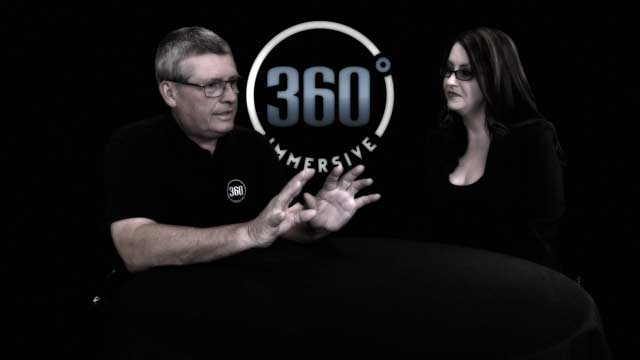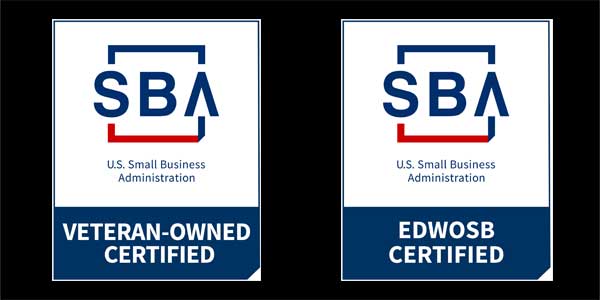David Cleverdon of 360 Immersive and Breean McKinney of Stevens-Henager College, Discuss the Use of Virtual Reality to Enhance Education and Learning
David: Hi, this is David from 360immersive. Today, we have the pleasure of talking to Bree from Stevens-Henager. Bree, can you tell us a little bit about what you do and your interest in virtual reality, especially from an education and training standpoint?
Breean: So, what I do for Stevens-Henager College is I am the business development representative, so my job is to get out into the community and meet folks like yourself and widen our influence and what we’re able to do in the community, for the community, and inside of it. And what interested me most in VR is I am not an IT person. I’m not a computer person. I mean, I can take my battery out for 30 seconds and put it back in. So, what excites me about VR is it is a tool that we can use to make people’s lives better. It’s a tool that doesn’t detract from our humanness. It doesn’t detract from our ability to interact with others. It assists us and aids us in a way that I think we wanted technology to do in the first place. But I know a lot of us feel like technology has kind of taken us away from each other, and I don’t know of a better way to allow people to get more in touch with their humanness and real experience in life than virtual reality.
David: Well, and if you think about it – and we, of course, approach it from the training standpoint – what better way to help people train than give them a tool where they can actually be in the middle of a circumstance or a situation that they have to be situationally aware of. They have to understand the content and retain the training to be safe. And if they don’t, that’s how accidents happen. So, you’re almost talking about empathy building, which we’ll talk about in a little bit, but that ability to train somebody with a new tool. And we have to all admit that VR is a new tool. So, how do you see that implementation when you’re actually using VR out in the field? I mean, you come from an educational standpoint. I mean, you guys are Stevens-Henager.
Breean: Yeah, and I think that that’s where the overlap is so interesting to me because the way that we deliver education is more focused on hands-on, actually doing it as opposed to just learning it, you know, death by PowerPoint and then filling in the bubbles. So, actually applying what you have learned is really kind of a foundation of how we deliver education anyway, and so then being able to take this new tool and really put you inside of a circumstance and provide you with the opportunity of that awareness, and to react, and to test different theories, and test different ways of responding to an environment. It’s just taking that to the next level.
David: So, we were just sitting here as we were going through a couple of technical problems. Speaking of technology, we were talking about how cool it would be to actually take some of your students and allow them to experience – and they’re IT people, – and to allow them to experience a full-blown server room in ways they can’t now because it just isn’t practical to do so, and so to be able to use VR and put them in the middle and to go through some processes and procedures, and if nothing else, to give them a feel of what it’s gonna be like in the trenches. And maybe they’re excited about it, and maybe they’re going, “Oh!”
Breean: “Oh, I don’t wanna do that.”
David: And they’d go in a different direction.
Breean: And then they would know they needed to go in a different direction, absolutely. That’s really fascinating to me because going through college, I know a lot of people went to college because that’s what you do, right? And then they started going down a certain path because there was no way to simulate that experience. There was no way they could test it out or try it or see if that was something that they were going to be passionate about until they graduated and then all of a sudden, hey, get a job, right? And that’s another important, amazing thing that I think VR provides us with the opportunity in education to do is to provide people the opportunity to go, “Wow, well my passion’s a little bit more in this area,” or “My passion is a little bit more in this area. Well, I guess I’m a programming guy and not a networking guy.” You know, or vice versa and to be able to fine-tune what their passion is.
David: So, if you think about law enforcement, or fire, or EMS, each one of these jobs is vitally critical to the community. We have to have folks that have passion about those types of career paths. But wouldn’t it be something if you could actually give somebody a taste of it? Now, with law enforcement, you could do a ride-along, but a lot of people don’t do it. They just –
Breean: And you might catch them on a very slow day too.
David: And they don’t get the feel, but imagine being able to put them in the middle of a circumstance and help them when it comes to continuing their education or maybe choosing their –
Breean: Choosing their vocation, yes, selecting their passion.
David: Absolutely.
Breean: And that makes me think about the career assessment questionnaires that we’re all very familiar with. You know, back in the day it was, “You’re gonna be a nurse,” or “You’re gonna be a firefighter,” or “You’re gonna be a secretary,” or whatever you’re gonna be. And now they’re a little bit more sophisticated, but it really is still that kind of, “Well, I kinda like this.” And it’s based upon what you already think you know. It’s not based upon something always that you’ve experienced. And that’s another application for VR in education is we can start way back in elementary school providing children with the opportunity to go, “Wow, I really loved that!” or “Yeah, I don’t wanna have anything to do with that,” and then giving them that head start on them being able to pursue their passions as they go into adulthood.
David: We have an educator in Blaine County. I mean he is so passionate about using VR to give kids as early as grade school, even as early as kindergarten, those experiences that there’s no way they could possibly – you could be on the beach in Australia and you could look at great white sharks. You could look at –
Breean: Check out a reef.
David: You could go places because we know today that it’s more and more difficult for schools to take kids out on field trips. Let’s face it, our schools are a little bit under threat. And so, what if we could help that circumstance with a new technology instead of taking one or two field trips a year?
Breean: If they’re lucky. Absolutely.
David: If they’re lucky. And what if they could do one a week? Or what if they could even do one a day because it’s so impactful in that learning experience using this new technology?
Breean: Where are we going to go today? You know, providing that opportunity. And I think the power that it has to stimulate the imagination where they know they’re gonna go to school every day. They’re gonna sit in this desk. They’re gonna do this. As opposed to, “Where are we gonna go today? What am I gonna see today?” I would love to have the opportunity to have my daughter come home and say, “Well, we toured German castles today. We learned about crazy King Ludwig II and his castles that he built, and I was there.”
David: And, “We were right there. I sat on his throne.” I mean how cool would that be?
Breean: Yeah, “I was able to see him and experience that.” As opposed to, “Well, we looked through one our decodable today.” So, the opportunity is just amazing.
David: So, Bree, thank you.
Breean: Absolutely. Thank you for having me.
David: And until next time, this is David from 360immersive.


